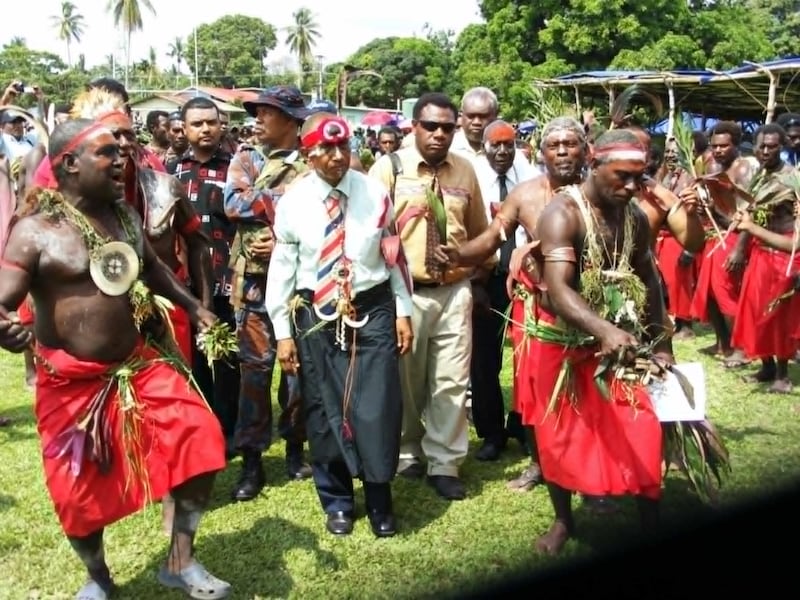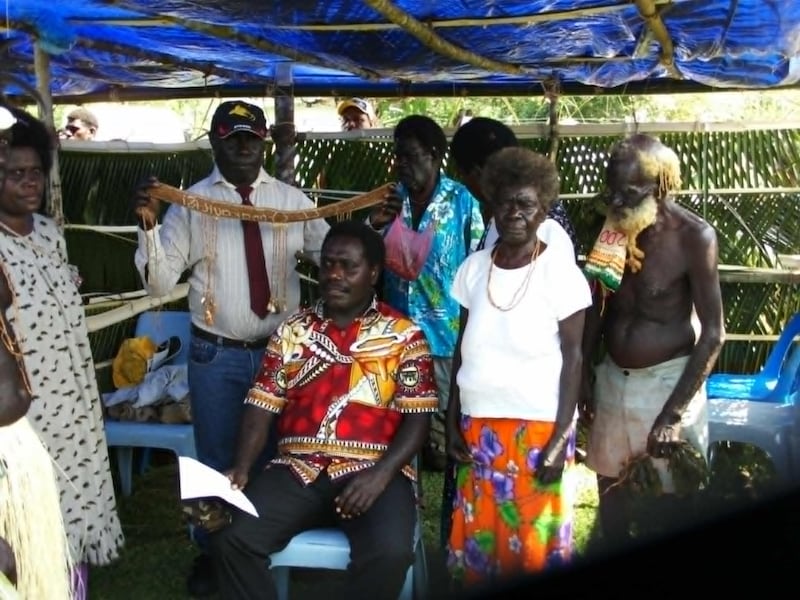Papua New Guinea’s autonomous province of Bougainville lost an unlikely supporter in its bid for independence with the death last week of former prime minister Sir Julius Chan.
One of the fathers of PNG's independence, the 85-year-old serving MP was buried in his village in New Ireland Province on Thursday, after seven days of mourning.
He will be remembered as the prime minister who in 1997 secretly hired South African mercenaries, in what is known as the ‘Sandline Affair’, in an ill-fated attempt to end the Bougainville civil war.
The violent conflict sparked by massive environmental damage and social disruption, caused by the Australian-owned Panguna copper and gold mine, resulted in the deaths of thousands in combat or through a lack of access to medical services between 1988 and 1998.
But a traditional Melanesian reconciliation ceremony in 2009 played a crucial role in resolving many of the deep divisions left after the civil war, some of which remain today.
Former Bougainville President James Tanis told BenarNews this week that he is happy that Chan did not take a grudge to the grave, but departed as a supporter of self-determination for Bougainville and his own province, New Ireland.
Tanis, also a former combatant of the Bougainville Revolutionary Army (BRA) and a key player in the 2001 peace agreement, was elected president in 2008.
He believed the reconciliation 16 years ago between Chan and Bougainville played a major part in the former PM’s change of heart about independence.
“This is one of the strengths of the Bougainville peace building strategy” Tanis said.

The ceremony led by traditional chiefs and church leaders in Bougainville’s capital Buka was designed to end their differences over the conflict, including hiring the Sandline International mercenaries.
Tanis and Chan washed each other's feet in a cleansing exchange signaling all past perceived misdeeds by each leader were personally forgiven, in the ceremony not widely reported outside of Bougainville.
The reconciliation process was initiated by the former BRA leader Joseph Kabui at the request of Chan. Kabui died before completing the process and Tanis said he “simply completed the process as Kabui’s successor.”
“We didn’t try to prop up the Sandline issue, first because the Bougainville peace building strategy is based on separation of people or individuals away from the issue of the dispute,” Tanis said. “Then after reconciling as people, we dealt with the grievances jointly and objectively.”
He told BenarNews reconciliation with Chan as “a person” removed Sandline as the dividing wedge.
The peace agreement guaranteed an independence referendum, which took place in 2019. An overwhelming 97.7% of Bougainville's population voted in favor of going it alone from the rest of PNG. The current PNG and Bougainville governments are still negotiating terms under which the national parliament can vote to ratify the result.
PNG Defense Force Commander during the Sandline crisis Jerry Singirok – who refused to follow orders, expelled the mercenaries and demanded the resignation of Chan – was another of those who had reconciled with the former PM.
Singirok told BenarNews he took out a full-page newspaper advertisement to apologize to Chan and his family, and later “I had a wonderful dinner with him.”

Australian journalist and author Mary-Louise O’Callaghan, who broke the Sandline story, said Chan’s decision to hire mercenaries to use against his own citizens was morally indefensible, but needed to be viewed in the context of the complex challenges he faced in trying to hold post-colonial PNG together.
“Chan feared, as many PNG leaders still do, that a breakaway Bougainville would spell the end of modern-day PNG,” she told BenarNews. “Other island provinces like his own, New Ireland, were already talking seriously about seceding.
O’Callaghan says people also forget that the decision to hire mercenaries was only made after successive efforts by Chan to resolve the conflict on Bougainville had failed.
“First and probably without enough groundwork, he asked the U.N. to back peace talks on the island, and then when these bore no real fruit, he made Singirok the commander of the PNGDF and promised him the resources to boost the military’s hapless efforts to quell the rebels. All this did was generate more casualties on both sides,” she said.
“Although Chan never resiled from the Sandline decision, it was the actions, in part, of a leader who was desperate at the time to ‘save’ his nation.”
The veteran ABC correspondent Sean Dorney, who also covered the conflict and wrote The Sandline Affair – Politics & Mercenaries and the Bougainville Crisis, said he thought Chan had regrets and it would forever be linked to his prime ministership.
“But I think you've got to look beyond that. The totality of his achievements in Papua New Guinea is quite considerable,” he told BenarNews.
Harlyne Joku contributed to this story
